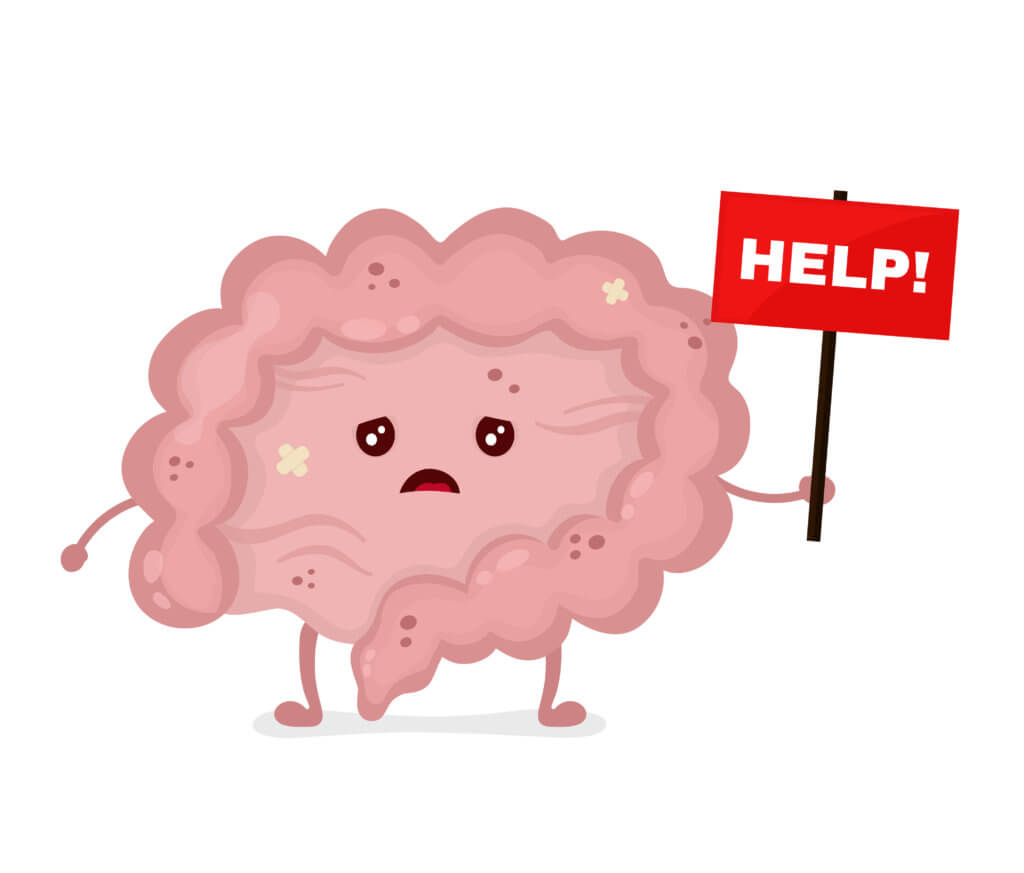When your gut is healthy, the rest of your body typically hums along happily. That’s because your gut influences everything from digestion to brain function to immune system strength. However, if your gut isn’t at its healthiest, your body tends to have a way of sending signals.
Many factors affect your gut health, like your family and genetic history and how your body is built. There are also factors you can control, like stress and diet. When your gut functions properly, there’s a good balance of bacteria helping your body process and get energy from the foods you eat. This, in turn, helps clear toxins, fight disease, and boost your mood.
So what are some of the key drivers of an unhealthy gut? Here’s a look at five contributors to poor gut health according to recent studies.
Artificial sweeteners
Artificial sweeteners are a common sight on diner and restaurant tables across the country. Research, however, shows three common artificial sweeteners — saccharin, sucralose, and aspartame — may cause perfectly healthy gut bacteria to become diseased and invade the gut wall, possibly leading to more serious health issues.
Once the gut is diseased, the bacteria attach themselves to, invade, and ultimately kill Caco-2 cells lining the wall of the intestine. After crossing the intestinal wall, bacteria such as E. faecalis typically make their way into the bloodstream and gather in the lymph nodes, liver, and spleen. Eventually, this can lead to a number of infections, including sepsis.
For all three analyzed sweeteners, the amount in two cans of diet soda is enough to significantly increase the clumping of both E. coli and E. faecalis to intestinal Caco-2 cells. This amount also differentially increased the formation of biofilms. Moreover, bacteria residing and growing within biofilms are less susceptible to antimicrobial resistance treatment and more likely to secrete toxins and express disease-causing virulence factors. All three sweeteners caused pathogenic gut bacteria to invade Caco-2 cells found in the intestinal wall.
The findings, however, were met with objections from the International Sweeteners Association (ISA), which claims that current evidence show no adverse effect of low/no calorie sweeteners on gut microbiota. “This study design ignores the well documented pathways of the different sweeteners’ metabolism in the gut and the time and amount of sweeteners that reach the gut microbiome,” the group told StudyFinds.com.
READ MORE: Artificial sweeteners could cause healthy gut bacteria to damage the intestine
Junk food / Processed food
Apparently, there’s a good reason “junk food” has that name. Scientists say diets containing animal products, alcohol, and sugar are wreaking havoc on human gut health. Junk food disrupts healthy gut balance by killing off the good bacteria in your body.
Burgers, sausages, and sugary beverages can all trigger inflammation which drives good bacteria from the intestine’s microbiome. They also increase the risk for a host of potentially deadly conditions including obesity, diabetes, heart disease, cancer, and Alzheimer’s.
The study findings are based on a food frequency survey of 1,425 people. In all, 331 participants had inflammatory bowel diseases like Crohn’s or ulcerative colitis. Doctors had diagnosed another 223 with IBS (irritable bowel syndrome). The other 871 had a normal gut. Thus, the results reveal processed products have a link to harmful bacteria across all participants. These foods include meats, soft drinks, and other items study authors say fall into the “fast food cluster.”
READ MORE: Junk food kills off healthy bacteria in your gut and triggers harmful inflammation
Food additives
A common food additive, carboxymethylcellulose, which manufacturers put in processed foods alters the healthy balance of gut bacteria in humans, a new study warns. The long-term impact of consuming this chemical may include developing chronic inflammation, metabolic syndrome, and even colon cancer.
Carboxymethylcellulose (CMC) is a synthetic member of the food additive family which scientists call emulsifiers. Food producers add these to many processed foods to enhance their textures and also prolong their shelf life. In studies using mice, scientists found that several emulsifiers (including CMC) altered the animals’ gut bacteria — leading to a wide range of severe conditions. These included colitis, metabolic syndrome, and colon cancer.
The study examined how this translates to human health, using a group of healthy volunteers in a randomized controlled-feeding study. Participants living at the testing site for two weeks consumed either an additive-free diet or an identical diet supplemented with CMC. Results show consuming CMC changed the makeup of bacteria in the colon, reducing the number of certain varieties which contribute to human health. They also found that feces samples from participants eating CMC had significantly fewer metabolites which maintain colon health.
Moreover, in a comparison of colonoscopies from before and after the experiment. Findings reveal that volunteers consuming CMC had more gut bacteria approaching the mucus in their stomachs. This is a key warning sign of inflammatory bowel diseases and type 2 diabetes.
READ MORE: Food additive in many processed foods alters gut health, may cause disease
E-cigarettes
In another blow to e-cigarettes’ supposed status as a “safer alternative” to smoking, a new study finds these vaping devices contain chemicals capable of disrupting the gut barrier. This causes excessive amounts of bodily inflammation which can lead to numerous health issues.
Chronic use of nicotine-free e-cigarettes can cause a “leaky gut,” meaning microbes and other molecules continually escape from the gut. This eventually results in chronic inflammation. This condition can contribute to many ailments, such as dementia, IBD, some cancers, diabetes, and arthritis.
The study says that two chemicals which are base ingredients in all e-cigarette liquid vapor are to blame for this inflammation: propylene glycol and vegetable glycerol. Numerous chemicals are created when these two are heated to generate the fumes in vaping that cause the most damage, for which there are no current regulations.
The safety of e-cigarettes have been debated fiercely. Nicotine content, and its addictive nature, has always been the major focus of those who argue against its safety, whereas lack of chemicals in the carcinogens that are present in the cigarette smoke has been touted by the makers of e-cigarettes when marketing these products as a ‘healthy alternative.’ In reality, it’s the chemicals making up the vapor liquid that we should be more concerned about as they are the cause of gut inflammation.
READ MORE: E-cigarettes can cause a ‘leaky gut,’ trigger harmful stomach inflammation
Poor oral health
Inflammatory bowel disease affects about three million people in the United States. An imbalance in the gut’s microbiome can be the cause of painful, and sometimes chronic, stomach conditions. One study suggests that trouble in your gut may actually start with trouble in your mouth. Poor oral hygiene can make a person’s IBD worse.
The study reveals two possible ways bacteria in a patient’s mouth travels to the gut and causes more inflammation. There is growing evidence that people with IBD have an overgrowth of foreign bacteria in their gut. That bacteria, typically starts within one’s mouth.
In one possible route, findings suggest that periodontitis (gum disease) creates an unhealthy imbalance in the mouth’s microbiome. That bacteria causes both inflammation and disease which then travels down into the gut. This particular process doesn’t trigger IBD, but it does aggravate the symptoms of mice with colon inflammation.
In the other route, periodontitis actually causes the body’s own immune system to damage the gut. Gum disease causes the immune system to react, sending T cells to the mouth to fight infection. In a healthy gut, inflammatory and regulatory T cells work in harmony and know how to tolerate local bacteria. Thus, this exacerbation of gut inflammation driven by oral organisms that migrate to the gut has important ramifications in emphasizing to patients the critical need to promote oral health as a part of total body health and wellbeing.
READ MORE: Brush for your gut! Doctors say poor oral hygiene may make IBD worse
So while it’s always important to think about what we can do to improve gut health, it’s just as vital to consider things that could make it worse. Be sure to have a conversation with your doctor if you plan on making any significant diet. health, or lifestyle changes. If you’ve got some tips and tricks of your own, please leave them in the comments below!












